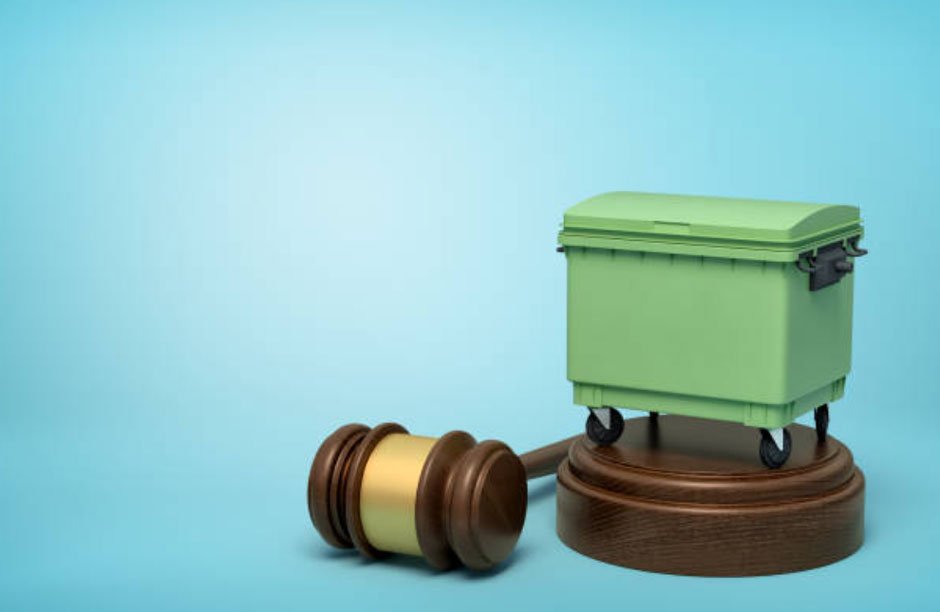What Businesses Must Know About UK Waste Laws
Governments, companies, and people aiming to achieve net-zero carbon emissions by 2050 and to limit environmental contamination must follow waste disposal laws. Good waste control is not only conserving resources but is also essential in fighting climate change. Strict waste disposal regulations in the United Kingdom help company executives cut back, reuse, recycle, and properly dispose of trash.
All businesses have to know the laws about their line of work. By using services like Skip Hire Appley Bridge, you can make sure your company follows Britain’s legal standards for safe and responsible waste disposal. In this article, we’ll explain the importance of waste disposal, along with highlighting the importance of knowing the waste laws of the UK so that businesses can stick to those rules and contribute to the environment.
An Overview of UK Waste Laws
Strict waste management regulations apply in the United Kingdom for companies. These rules guarantee that waste is treated properly and also protect the ecology. Whether you operate a little store or a big factory, it is your legal responsibility to handle your trash correctly. All sorts of corporate waste including paper, plastic, food, electronics, and dangerous substances are covered by the statutes. Knowing your duties can keep you from violating the law and lowering your ecological footprint.
What Should be Considered Business Waste?
Business waste refers to any rubbish generated by business activity. This includes home-based enterprises, restaurants, manufacturing, workplaces, and stores. Typical varieties of commercial waste are broken equipment, packaging, food scraps, and cleaning chemicals. You can’t handle this rubbish the same way as domestic waste. Your waste is still considered commercial even if you work from home. This means you should get a registered waste carrier or a licensed facility to dispose of it.
Duty of Care Responsibilities
All United Kingdom businesses have a “duty of care” about waste. This means that you have to do everything possible to properly handle and eliminate waste. You need to properly keep records, use official waste removal companies, and carefully store them. Whenever your waste changes hands, therefore, you should also complete a waste transfer notice. These remarks should be retained and shown to officials on request for a minimum of two years. Not obeying these regulations might lead to great fines.
Using Registered Waste Carriers
You can’t relinquish your business waste to anybody. Your waste carrier has to be confirmed to have an Environment Agency record. This is the case for independent contractors, garbage removal businesses, and even skip-hire firms. One place you can look is the Internet public register. Illegal as well as dangerous, using an unlicensed carrier. Even if you didn’t dump it personally, if your garbage is once illegally thrown (flytipped) and it’s traced back to you, your company might be fined.
Dealing with Dangerous Waste
Additional attention should be given to dangerous waste. This covers medical waste as well as solvents, electrical equipment, batteries, and chemicals. To avoid spills or damage, you need to label and store dangerous materials carefully. You will also need a particular consignment note for transportation. Only certified hazardous waste transporters can manage this kind of substance. Ignoring these standards can result in prosecution as well as significant environmental and health problems. If your company generates dangerous material, ensure your workers are well instructed in its handling.
Waste Management and Recycling
Adhering to waste rules helps to lower waste wherever feasible, as much as it is legal. Businesses are inspired to decrease garbage going to landfills, recycle, and reuse resources. Although not every sector needs it, recycling can help to cut costs and enhance your environmental reputation. Commercial recycling services are available from several local governments and private businesses. Establish distinct containers for paper, plastics, and food scraps to simplify recycling. Encouragement of a waste-conscious environment also attracts eco-minded clients and raises employee morale.
Consequences of Breaking the Laws
Local governments, together with the Environment Agency, implement waste regulations in the United Kingdom. Failure of your company to cover its waste obligations will expose you to fines. This includes instant fines, prosecution, and even, in rare instances, shutdown. The penalties can be significant up to £5,000 in a magistrates’ court or unlimited in a crown court. Since inspections may come without alarm, it is essential always to comply. Clear recordkeeping, approved carrier usage, and knowledge of legal changes will all keep you out of problems.
Conclusion
All United Kingdom companies have a legal and ethical responsibility to handle waste correctly. Every stage from organising garbage to using licensed carriers helps to maintain the environment clean and secure. By knowing UK waste legislation, your company can help to protect its image, stay clear of penalties, and support a more sustainable future. Include waste compliance in your daily schedule, and not only will you help your neighborhood, but you will also remain legally compliant.







